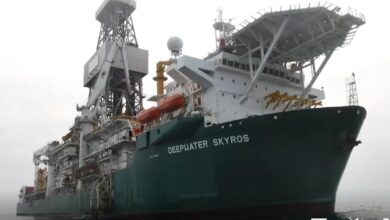Wirelines
US House votes to repeal BLM rule on methane emissions
On 3 February, the US House of Representatives voted in favor of H.J.Res. 38, which is a Congressional Review Act resolution to nullify “Waste Prevention, Production Subject to Royalties and Resource Conservation,” a rule from the US Bureau of Land Management (BLM). The rule regulated methane emissions via venting and flaring limitations on public and Indian lands.
In response to the vote, IADC President Jason McFarland said, “IADC applauds the actions today of the US House of Representatives to pass H.J.Res. 38 to render the BLM’s duplicative and costly rule without effect. Since the BLM first introduced the rule in 2016, IADC and other industry groups have argued that the regulation would have the unintended impact of fewer jobs, higher costs for consumers and less energy security and federal revenue. The truth, of course, is that natural gas is valuable, and energy companies prefer to capture it rather than to vent or flare it off.
“Much of the rhetoric surrounding the necessity of this rule was based on information that does not truly represent the leaps and bounds industry has made with regard to reducing methane emissions from natural gas venting and flaring. According to the Western Energy Alliance, since 2005, these emissions have declined 38%, even as production has boomed. This speaks to the commitment by the energy industry to adhere to environmentally sound operations, even without regulatory oversight.
“The action by the House to repeal a rule that industry has argued from the start was unnecessary is welcome news, and we ask the US Senate for swift action.”
The US Senate will now consider the resolution.
OESI issues new report on human factors and implications on drilling safety
The Offshore Energy Safety Institute (OESI) recently announced the availability of a new report, “Human Factors and Ergonomics in Offshore Drilling and Production: The Implications for Drilling Safety.”
The report was prepared by OESI under a contract from the US Bureau of Safety and Environmental Enforcement (BSEE).
It is organized in two parts. The first presents a summary of current literature on the status of the oil and gas industry with regard to the adoption and integration of hydraulic fracturing methods, principles and processes. The second assesses gaps in current research efforts and identifies topics believed to be candidates for further study, including perceptual- versus cognitive-based decision making; instantiating super workers’ wisdom; vigilance; and stressed performance testing.
The report also offers suggestions regarding return on investment and key performance indicators. OESI has accepted an invitation from the Human Factors and Ergonomics Society to co-host a forum in 2017. The date has not been set but is expected to be announced soon.
Click here to read the OESI report on human factors and ergonomics.
IADC applauds US Senate confirmation of Scott Pruitt as EPA administrator
On 17 February, the US Senate confirmed Scott Pruitt as Administrator of the Environmental Protection Agency (EPA).
In response, IADC President Jason McFarland said, “IADC and its members are looking forward to working with Administrator Pruitt on a wide variety of high-profile regulations that carry with them the ability to deeply impact oil and gas activities. Given his background and his Oklahoma roots, we expect that Administrator Pruitt has a unique understanding of our industry and the vitally important role it plays in the US economy. In his committee hearing, he confirmed his belief that one can be pro-energy while also being pro-environment and stated unequivocally that the EPA serves a very important and very valuable role.
“IADC seeks to serve as an educative resource for the agency as it moves forward under the leadership of Administrator Pruitt. As always, IADC looks forward to working with EPA officials to ensure that all policies support the continuation of the US oil and gas industry as an energy powerhouse, providing the energy that powers the US economy.”
Industry files FOIA request on costly jones act rule
The API has filed a Freedom of Information Act (FOIA) request for information relating to a proposed new interpretation of decades-old customs rules by the US Customs and Border Protection (CBP).
The proposal could significantly increase costs for offshore drilling by reclassifying as “merchandise” much of the drilling equipment and consumables used in the US Gulf of Mexico. On 18 January, the CBP proposed revoking or modifying at least 30 rulings, which, according to the CBP, are “contrary” to the original definition of vessel equipment – “portable articles necessary and appropriate for the navigation, operation or maintenance of the vessel and for the comfort and safety of the persons on board.” Under the Jones Act, only US-flagged and qualified vessels can transport “merchandise.”
Changes to the rule could require drilling equipment and consumables to be offloaded from the rig to US-flagged and qualified vessels for transport to the next well. Impacted equipment is likely to include risers, drill pipes and collars, BOP stacks and consumables, such as cement and chemicals. Rig costs could increase by more than $1 million. IADC, along with allies, are working the issue. As of early March, the CBP has not responded to DC’s questions on the proposed ruling, nor provided a spokesman qualified to answer such questions, despite repeated requests.
Click here to see the proposed Customs and Border Protection changes.
Click here to read additional details related to the proposed CBP changes.




